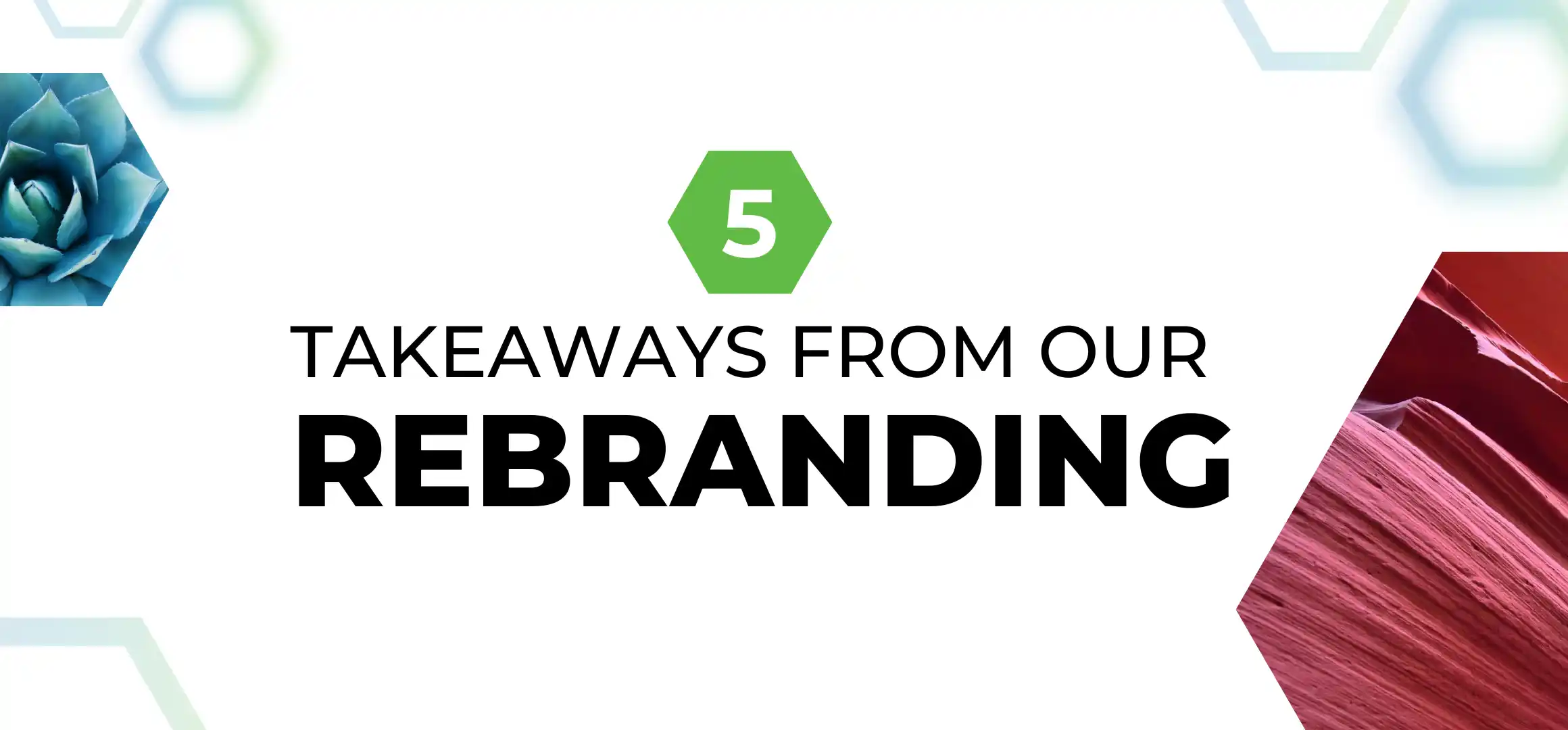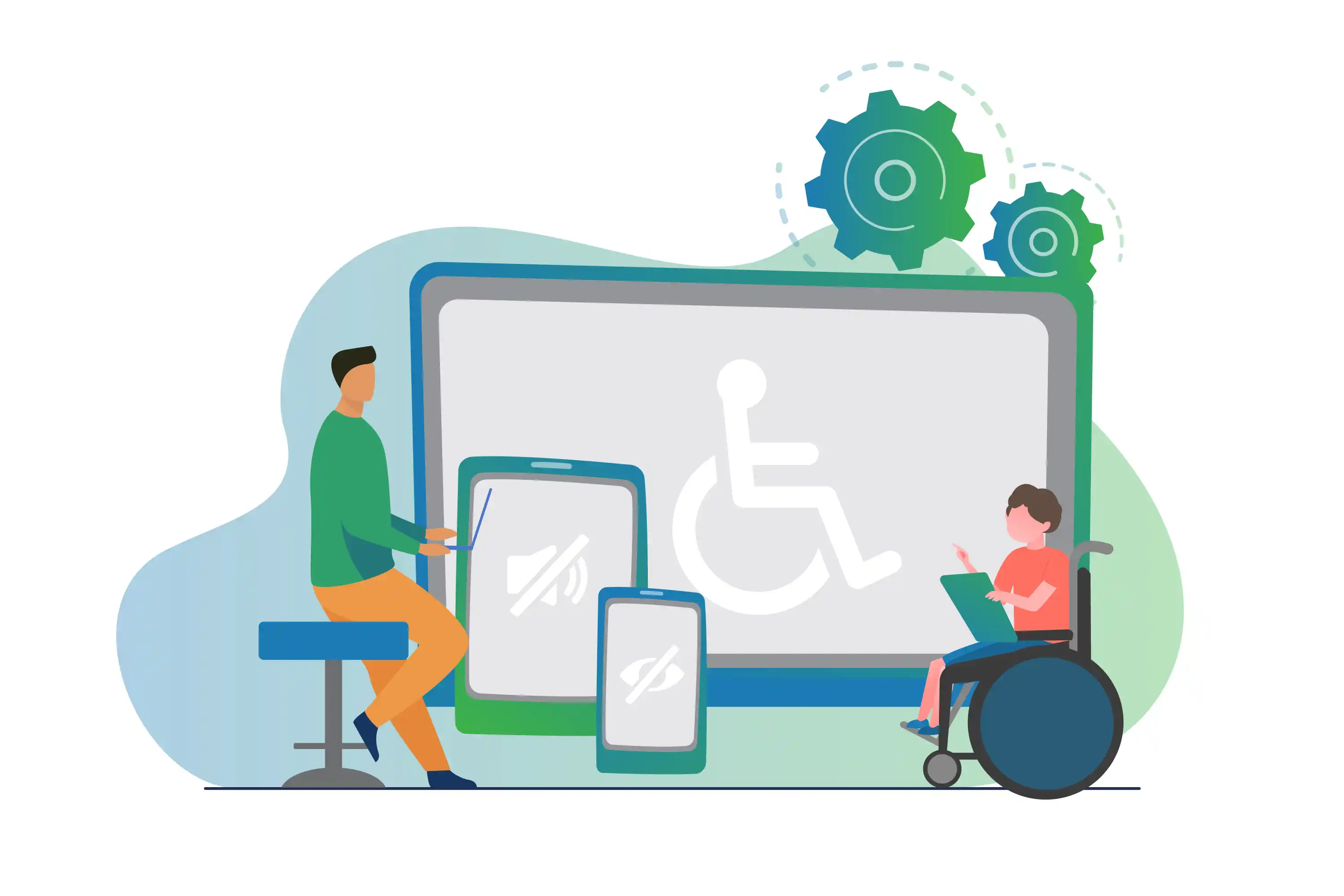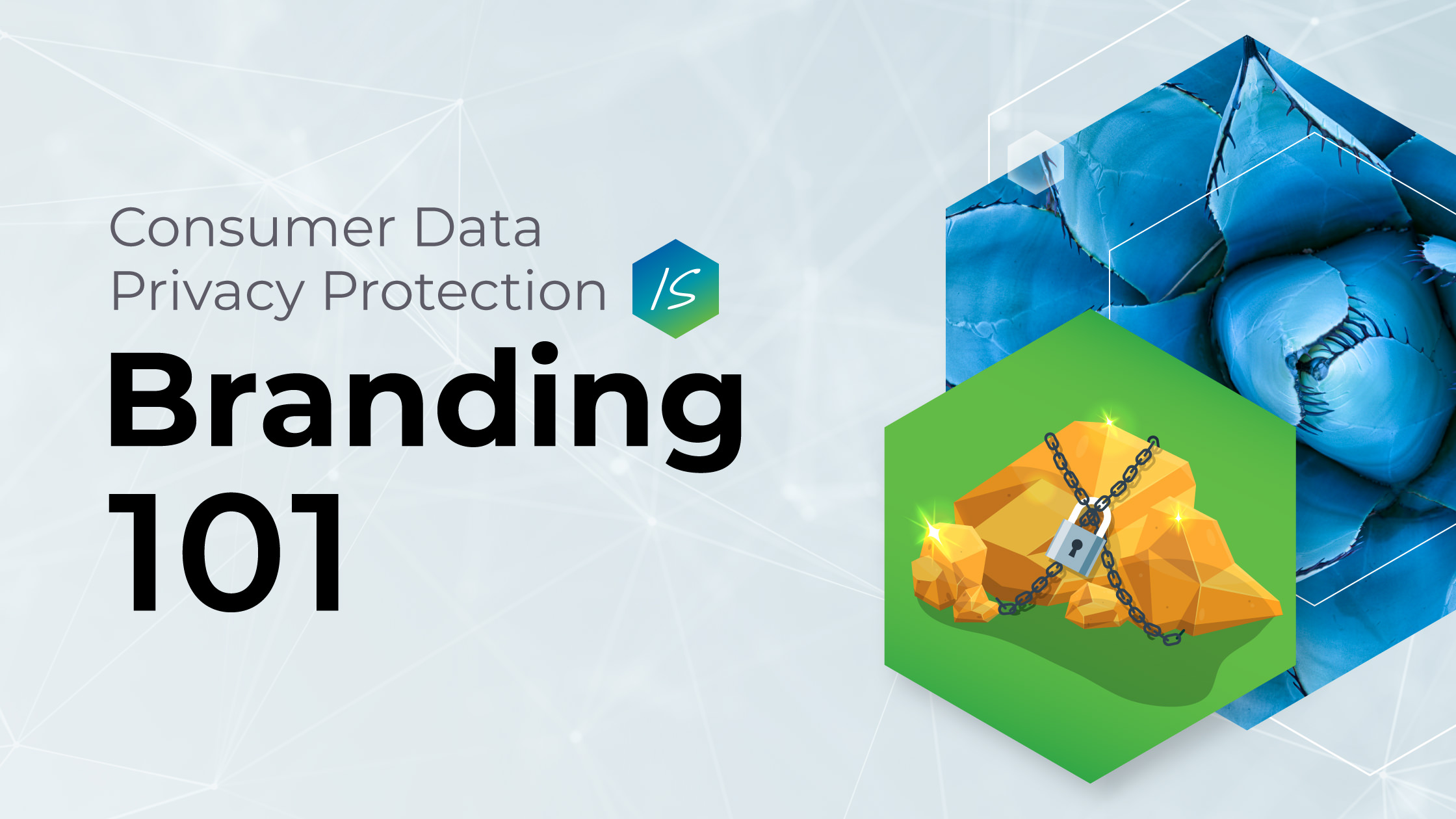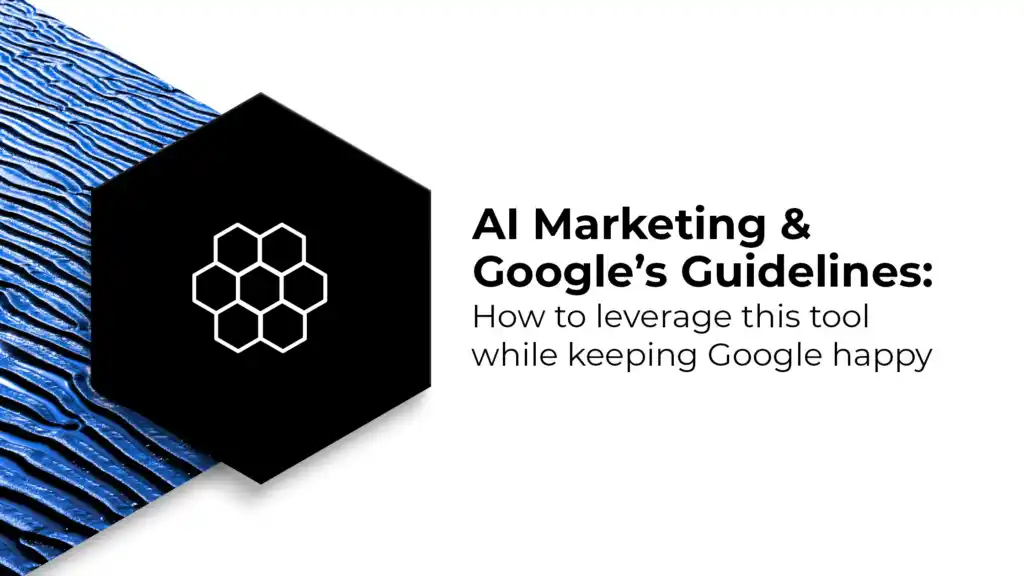
How is artificial intelligence used in marketing?
Artificial intelligence (AI) is quickly revolutionizing the digital marketing landscape, empowering businesses with advanced tools and capabilities.
To keep this conversation as practical as possible, let’s dig into the AI impact on marketing by zooming in on 6 marketing activities that AI is uniquely positioned to support.
- Audience segmentation and tracking
- Predictive analytics
- Ad optimization
- Dynamic pricing
- Chatbots and virtual assistants
- Content creation
- And we’ll wrap with the clearest interpretation of Google’s AI Guidelines you’ll probably ever read!
What is the impact of artificial intelligence in marketing?
As a brand marketer, you’re responsible for crafting digital marketing strategies that grow the bottom line.
Let’s explore how AI can help you do that by looking at 6 vital marketing functions, and why each category requires a high degree of interconnectedness between AI and human expertise.
*Note: While we’re focusing on one primary human role for each of the 6 scenarios below, there is significant overlap between them all. You’ll see – keep reading.
1. Audience Segmentation and Targeting
The upside of artificial intelligence:
AI can analyze large amounts of customer data to identify patterns, preferences, and behaviors.
The upside of human expertise:
AI-generated recommendations should never be applied carte blanche. Critical (human) thinking is needed to validate the suggested segment’s accuracy, relevance, and reliability.
Humans are also needed to refine and adjust segments. Based on their subject matter expertise and contextual knowledge, human marketers can merge or split segments, add additional criteria, or make other modifications to keep the segments aligned with business goals.
Additionally, human discernment helps to keep the segmentation process free from discriminatory or skewed outcomes. Learn more about this in our Inclusive Marketing Guide.
2. Predictive Analytics
The upside of artificial intelligence:
AI-powered algorithms can analyze historical data to predict future customer behavior, such as purchasing patterns or churn likelihood.
The upside of human expertise:
AI-generated insights need to be interpreted. Humans can contextualize the implications of the predicted customer behavior and identify actionable insights that may affect several aspects of your brand’s larger marketing ecosystem.
For example, the Apiary talent bench has an average of 12 years’ experience. The depth and breadth of insights available from a marketing expert with decades of experience in your specific industry and/or marketing context? AI could never.
3. Ad Optimization
The upside of artificial intelligence:
AI can automate the optimization of ad campaigns by continuously analyzing data in real-time. It can adjust bids, ad placements, and creative elements to maximize conversions and return on ad spend (ROAS).
One example of this is Google’s Performance Max AI. The algorithm studies multiple data inputs and feeds, and makes deterministic conclusions based on an instruction set.
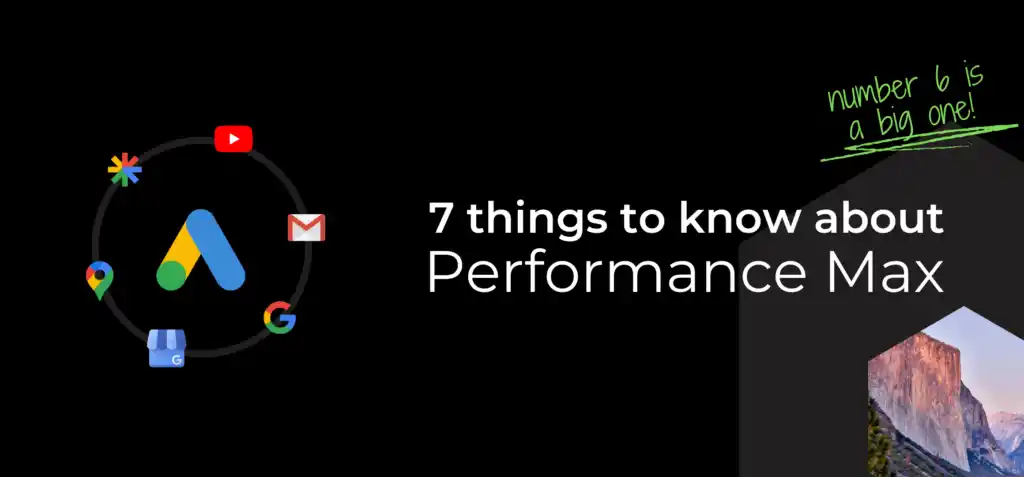
7 things to know about Performance Max Is Performance Max Google’s next great thing?
The upside of human expertise:
AI ad optimization automation is music to everyone’s ears, but not a silver bullet.
Humans can leverage the speed and accuracy of AI to optimize ads but MUST be heavily involved in the fine tuning process because only humans can layer in highly relevant contextual considerations like:
- Business goals
- Brand identity
- Target audience nuances
- Competitive landscape
- Ethical considerations.
Noticing a theme so far? Humans have a singular capacity to combine multiple CONTEXTS with specificity and nuance in a way artificial intelligence simply cannot on its own.
4. Dynamic Pricing
The upside of artificial intelligence:
AI can dynamically adjust prices based on factors like demand, competition, and customer behavior. This enables marketers to optimize pricing strategies to increase sales and revenue.
The upside of human expertise:
AI-generated pricing insights are limited to the data points the AI has (which, to be clear, always produces an incomplete picture). As a result, dynamic pricing adjustments need to be closely monitored by humans with a broader view of your organization’s business objectives, budget, inventory, and other constraints.
Human marketers can leverage the speed of AI-produced price adjustments while making performance-driven strategic decisions that account for:
- Profit margins
- Revenue goals
- Competitor pricing strategies
- Market trends and/or disruptions, and more.
5. Chatbots and Virtual Assistants
The upside of artificial intelligence:
AI-powered chatbots and virtual assistants can provide personalized customer support and assistance, helping to improve customer satisfaction and streamline the sales process.
The upside of human expertise:
AI has a general notion of what “customer service” means, but to maintain the highest quality customer experience, chatbots need to be customized and closely monitored to ensure:
- Brand voice alignment
- High contextual alignment with industry and product category expectations
- Quick access to FAQs without prohibitive hoops to jump through to speak to a real person.
6. Content Creation
Ah, the one everyone’s still talking about. Is every syllable on our beloved internet about to be created by AI? Will Google penalize this? Should you fire your entire content team?
Let’s start with the basics and come to the Google AI marketing guidelines next…
The upside of artificial intelligence:
Our SEO consultant-partners will tell you that any conversation about improving organic search traffic MUST include consideration of the content currently on your site and how frequently you’re publishing new content (weekly is our recommended minimum).
There’s no question that AI has drastically expanded our ability to produce a high volume of content, which is one part of what search engines want to see. AI can streamline repetitive or standardized content tasks like:
- Generating landing page or blog post outlines
- Suggesting content structure
- Drafting any type of written content
- Creating product descriptions, social media posts, or email marketing
- Producing images, infographics, and videos.
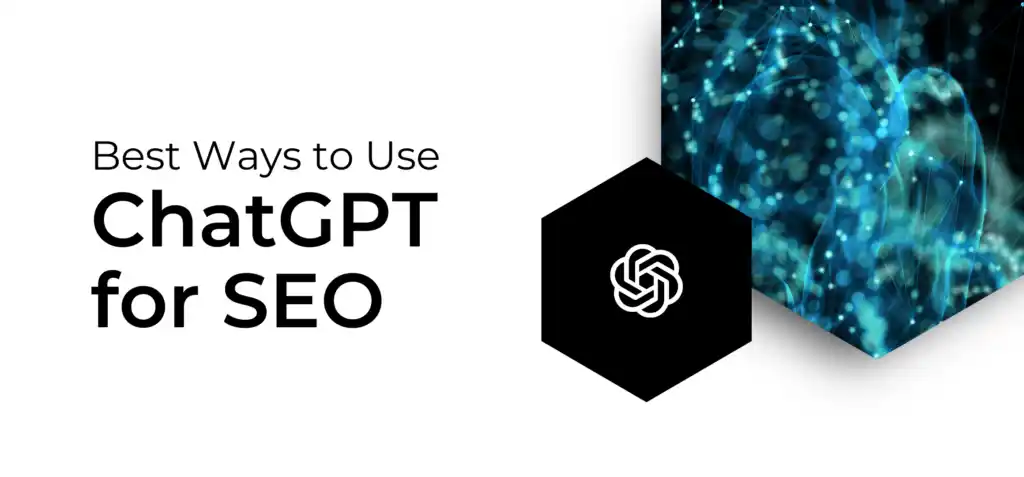
What is ChatGPT? And how should you use it for SEO
The upside of human expertise:
Marketers (aka: humans) bring creativity, empathy and emotional attunement, decades of contextual learning, and strategic thinking to craft marketing campaigns that resonate with your target audience. AI is a hugely powerful tool in this process – it’s not capable of overtaking the entire process itself.
AI-generated content MUST be paired with human content evaluation and quality control.
Creating content that drives business results requires human experts who can evaluate the relevance and alignment of AI-generated materials to ensure it syncs with your business objectives, target audience, key messaging pillars, and brand guidelines. This editorial role is essential to:
- Ensure content accuracy and fact-checking
- Fact-check statistics, quotes, and other externally-sourced information
- Ensure proper sourcing and citation, where needed
- Verify the validity of claims or data presented in the content
- Maintain brand voice and style
- Inject creativity and originality into content for greater impact
- Ensure customer data is handled responsibly
- Detect errors or inaccuracies that may have been overlooked by AI algorithms
- Consider legal and ethical considerations.
Sidenote: We used ChatGPT to support the creation of this article. Twice, it produced inaccurate results. We explained why it was wrong, and the friendly bot apologized and corrected its responses. This is the beauty of artificial intelligence - machine learning constantly updates itself. Wonderful. Just don’t forget that it’s us (the human folks!) who have to meticulously teach AI how to serve us well, while accounting for the context that AI simply cannot provide.
AI, algorithms, and SMART things have actually been living inside marketing for a while. They are powerful research tools, weave-it-together tools, and can be helpful gut check tools in the process of building a holistic marketing growth engine.
But can these tools deliver comprehensive and lasting bottom-line results with minimal human intervention? That’s a big nope.
Is AI content against Google Search’s guidelines?
In May 2023, Google announced plans to deploy advanced AI technology into its own search engine.
Their language AI model, PaLM 2, powers this new AI-driven search feature and several updates to their Bard chatbot and mainstay products like Gmail and Google Docs.
However, for brand marketers like us, their February 2023 “Google Search’s guidance about AI-generated content” still stands. Here’s the gist of what they said there:
Google does not care how content is produced (aka: AI-supported content is welcome).
Google is interested in the quality, relevance, and trustworthiness of content.
Google’s AI Guidelines are fine with AI content. Low quality and low relevance content? Not okay.
For all the reasons we detailed above, producing the most high quality, relevant, and trusted content, can’t be done without human expertise.
– We generally avoid definitives like “always”, “never” or “can’t” but this one is definitely a CAN’T.
Google’s AI Guidelines are clear that human marketers are responsible for ensuring that AI-generated content aligns with searcher intent, addresses user needs, and delivers a positive user experience.
By combining the analytical power of AI with human insight, marketers can create a harmonious blend of data-driven strategies and human intuition.
This human-centric approach allows for a happy marriage between Google and AI content, resulting in performance campaigns that articulate the problems you solve, the distinctiveness of how you solve them, and nurture trust that produces loyal customers and sustainable revenue growth.
TL;DR on AI Marketing and Google’s Guidelines
- AI can optimize the customer journey in a number of ways, including audience segmentation and targeting, predictive analytics, dynamic pricing, customer service chatbots, ad optimization, and marketing content creation.
- For all the advantages that AI offers, it still lacks a holistic understanding of the broader context of your business and the marketplace challenges and opportunities you’re facing. This is why human growth experts can’t be replaced.
- Google’s AI guidance is clear that AI-produced content is fine, but content needs to be high quality and provide high relevance to searcher intent in order to rank well.
